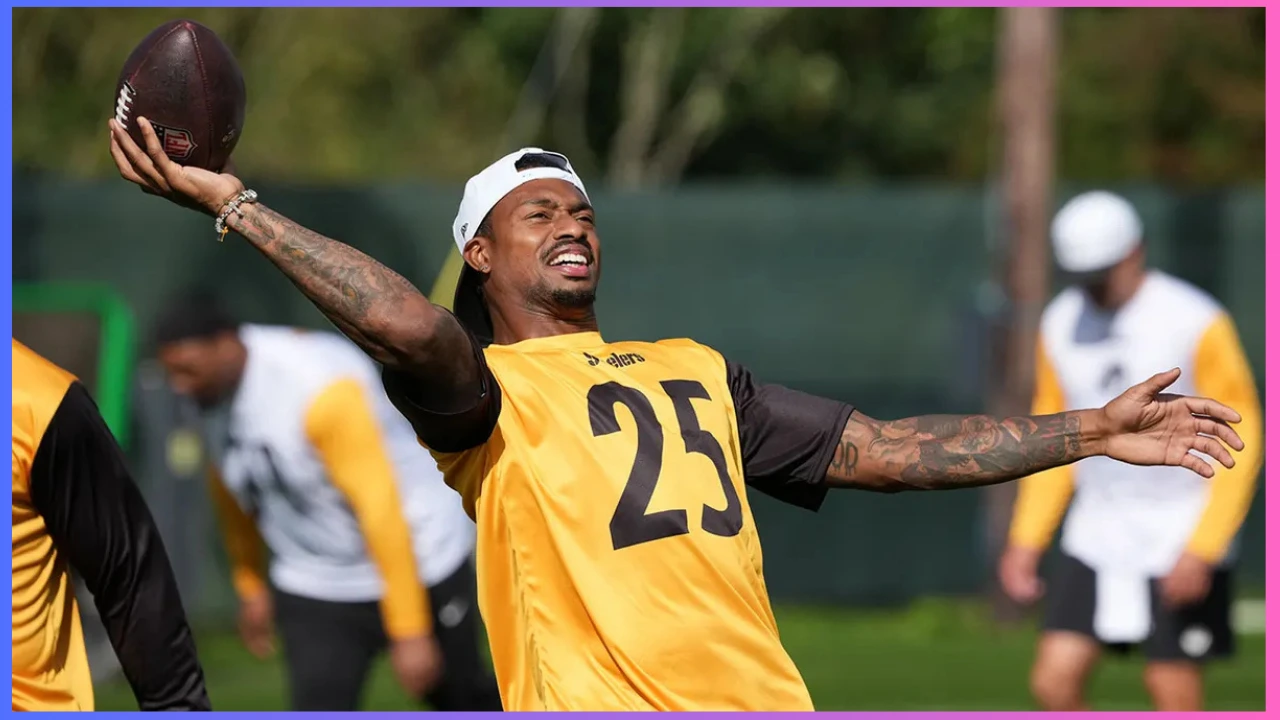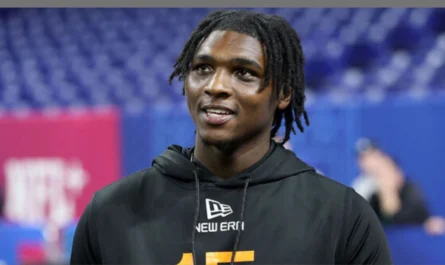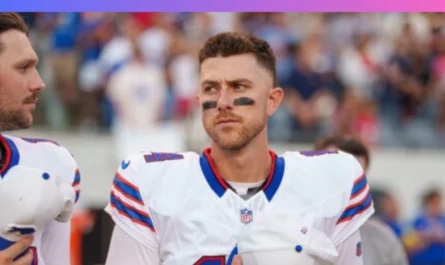When Pittsburgh Steelers safety DeShon Elliott was hit with a fine for a uniform violation, the veteran defender didn’t stay silent. Instead, he fired back on social media with the explosive message, “count your f—- days,” instantly turning a routine penalty into one of the week’s biggest NFL talking points. The DeShon Elliott NFL fine stemmed from something as small as a towel color, but it has grown into a much larger debate across the football world. Fans, analysts, and even fellow players are weighing in on whether the league’s strict uniform policies are worth enforcing so aggressively.
To many, Elliott’s reaction highlights a long-standing frustration: the NFL appears more focused on minor details than on issues that actually impact player safety and the game itself. In short, the DeShon Elliott NFL fine has sparked a controversy far larger than its dollar amount.
The Incident: What Happened?
In Week 4, during a game played in Dublin, Ireland, Elliott was issued a fine by the NFL for using a black towel rather than the mandated white towel. The fine, reportedly $5,797, was levied under the league’s uniform and equipment rules. According to the NFL’s Rule 5, Section 4, Article 6, Item (5), towels on the field must be licensed, approved by the league, and white in color.
Elliott posted the fine notice to his Instagram Story and added the biting caption:
“Count your f—- days … Y’all worried about the wrong things. Let’s fix things that actually mean something.”
That public reaction turned what might have been a minor equipment fine into a topic of national sports conversation. The DeShon Elliott NFL fine is now being examined not just for its dollar amount, but for the tension it reveals between league control and player pushback.
Elliott’s Position: The Reaction & Backlash
Elliott’s message was blunt. By telling the NFL to “count your days,” he seemed to suggest that the league’s focus is misplaced. The DeShon Elliott NFL fine, in his view, highlights a prioritization of procedural minutiae over more substantive issues facing players and the sport.
Some analysts warn that Elliott’s fiery tone could invite additional scrutiny or even further fines. As one publication put it: “Him telling the NFL to ‘count your [expletive] days’ could result in another fine being tacked on…” Meanwhile, others empathize, saying the reaction underscores the frustration many players feel about strict uniform policies that may seem inconsequential in the grand scheme.
Whether Elliott will appeal the fine is still unclear. If he doesn’t, the DeShon Elliott NFL fine will be deducted from his next game check. If he does appeal and wins, the fine could potentially be rescinded.
Context: Elliott’s Career & Recent Performance
To understand why this moment resonates, it helps to know who DeShon Elliott is—and what he’s achieved. According to his biography, Elliott was born April 21, 1997, in Dallas, Texas, and played college football for the University of Texas. He entered the NFL as a sixth-round draft pick in 2018 and has since played for the Baltimore Ravens, Detroit Lions, Miami Dolphins, and now the Pittsburgh Steelers.
In June 2025, Elliott signed a two-year contract extension with Pittsburgh worth $12.5 million (with $9.21 million guaranteed). Last season, he logged 108 tackles, which was a career high, along with a few forced fumbles and pass breakups. Thus, Elliott isn’t a fringe player looking for attention—he’s a proven starter with expectations and credibility. That context magnifies the impact of his criticism over the DeShon Elliott NFL fine.
Why the Fine Matters Beyond the Dollar Amount
At first glance, $5,797 may not move the needle for a well-compensated NFL player. But the significance of the DeShon Elliott NFL fine goes deeper:
- Symbolic Weight & Control
The fine underscores how tightly the NFL regulates uniform and equipment rules—even down to towel color. That level of control can rub players the wrong way, especially when they feel more significant issues (health, safety, game integrity) deserve attention. - Player Voice & Pushback
Elliott’s social media spotlight turned a relatively small fine into a public moment. It shows how players are increasingly willing to challenge the league when they feel policies border on trivial or overly bureaucratic. - Precedent for Future Disputes
The loud reaction to the DeShon Elliott NFL fine may embolden other players to question rules they deem unfair. It raises the question: If this can balloon into controversy, what else might? - League Reputation & Enforcement Choices
The NFL has often defended strict uniform rules as maintaining consistency, fairness, and brand integrity. But when high-profile players publicly push back, the league risks being seen as nitpicky or tone‐deaf to player concerns.
Reactions & Wider Implications
The sports media sphere is already buzzing. Some fans side with Elliott, arguing that rules about towel color are trivial and that the league’s policing could be better focused elsewhere. Others caution that rules—however small—help maintain a standard, and players have to accept penalties for infractions.
Some commentaries note that the Steelers themselves have a history of uniform or equipment-related fines. Notably, defensive tackle Cameron Heyward has been fined in past seasons for inscriptions on his eye black. Such precedents suggest this type of disciplinary enforcement isn’t new, but Elliott’s bold public response may push the needle further.

One caution: Elliott’s wording could be interpreted as threatening, which might invite additional punishment. As one article observes, “Him telling the NFL to ‘count your [expletive] days’ could result in another fine…”
What’s Next?
The DeShon Elliott NFL fine saga is not over. Key things to watch in coming weeks include:
- Whether Elliott formally appeals the fine.
- Possible league response or additional fines tied to the tone of his comments.
- Reactions from the NFL Players Association and other players weighing in.
- Whether this incident influences future enforcement or drives discussion on loosening or refining equipment/uniform rules.
Final Thoughts
The confrontation over the DeShon Elliott NFL fine is more than just a spat over towel color—it’s a microcosm of tension between league authority and player autonomy. For Elliott, publicly calling out the NFL elevated a small fine into a broader conversation about priorities, respect, and voice in a tightly regulated sport.
Without doubt, this moment will be remembered not only for the words “count your days,” but for the light it shines on how far regulation in professional sports can go—and how one player’s pushback can rock the status quo.



